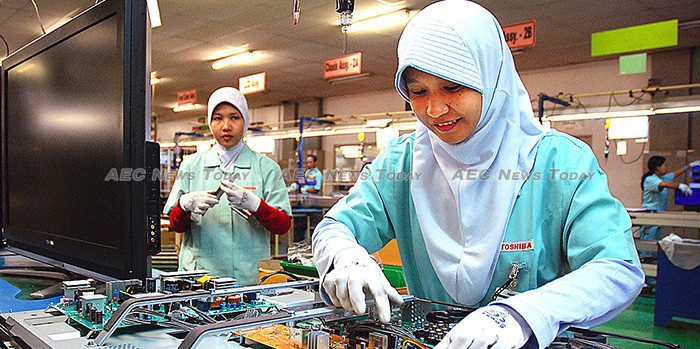The Asian Development Bank (ADB) has approved a $200 million loan to upgrade four higher education institutions in Indonesia and improve the technical and vocational training programmes that will help youth obtain the job skills needed in the evolving global economy.
The Advanced Knowledge and Skills for Sustainable Growth (AKSSG) Project will improve the quality of education and research in three universities in Sumatra — Jambi, Riau, and Malikussaleh in Aceh — and the Indonesia University of Education in Bandung, West Java, by strengthening their collaboration with industry, as well as international and domestic universities. The project will also finance the construction of new lecture halls, laboratories, and other infrastructure equipped with climate-proofing design features.
The universities in Sumatra will establish research centres for sustainable agriculture and natural resources, as well as marine and aquatic science, to support local economic development. The Indonesia University of Education will focus on improving the quality of technical and vocational education and teacher training in areas such as information systems and technology; artificial intelligence and robotics; industrial instrumentation engineering; and renewable energy engineering.
Tech skills needed to meet market demand
“Indonesia has one of the world’s youngest populations, which is expected to boost the country’s labour productivity in the next few years. It is important that this young working population has the skills that the labour market demands”, said ADB senior social sector specialist Rudi van Dael. “ADB’s assistance will increase student access to higher education and support the advancement of skills and knowledge among Indonesia’s youth”.
While enrolment in higher education in Indonesia has increased to 7.5 million in 2018 from 4 million in 2004, Indonesia faces a shortage of skilled workers as its economy shifts to more technology-intensive and services industries, which require higher levels of technical proficiencies in areas such as data mining and robotics.
“The demand for students majoring in engineering and technology is high. With 20 per cent of the students enrolled in these fields, there is room for growth”, said ADB senior project officer Sutarum Wiryono. “Students can benefit if their skills meet the demands of the job market and if teachers have the qualifications to teach”.
The total cost of the project, which is expected to be finished by the end of 2023, is $266.5 million, with the Indonesia government contributing $66.5 million.
This article first appeared on Asian Development Bank under a Creative Commons License and is produced here with its permission.
Feature photo ILO in Asia and the Pacific
Related:
- ADB approves USD 200 mln loan to upgrade Indonesian higher education institutions (Devdiscourse)
- ADB grants to boost Lao tourism, city services (AEC News Today)
In 2017, ADB operations totalled $32.2 billion, including $11.9 billion in co-financing.
Latest posts by Asian Development Bank (see all)
- RRTS: Increasing inter-island trade in the Philippines through island hopping – June 22, 2020
- Bayan Bayanihan brings food and hope to the poorest of the poor – May 21, 2020
- COVID-19: the time to act on food security is now – May 10, 2020
- No handwashing for 1 in 5 Indonesians as COVID-19 runs wild – May 8, 2020


